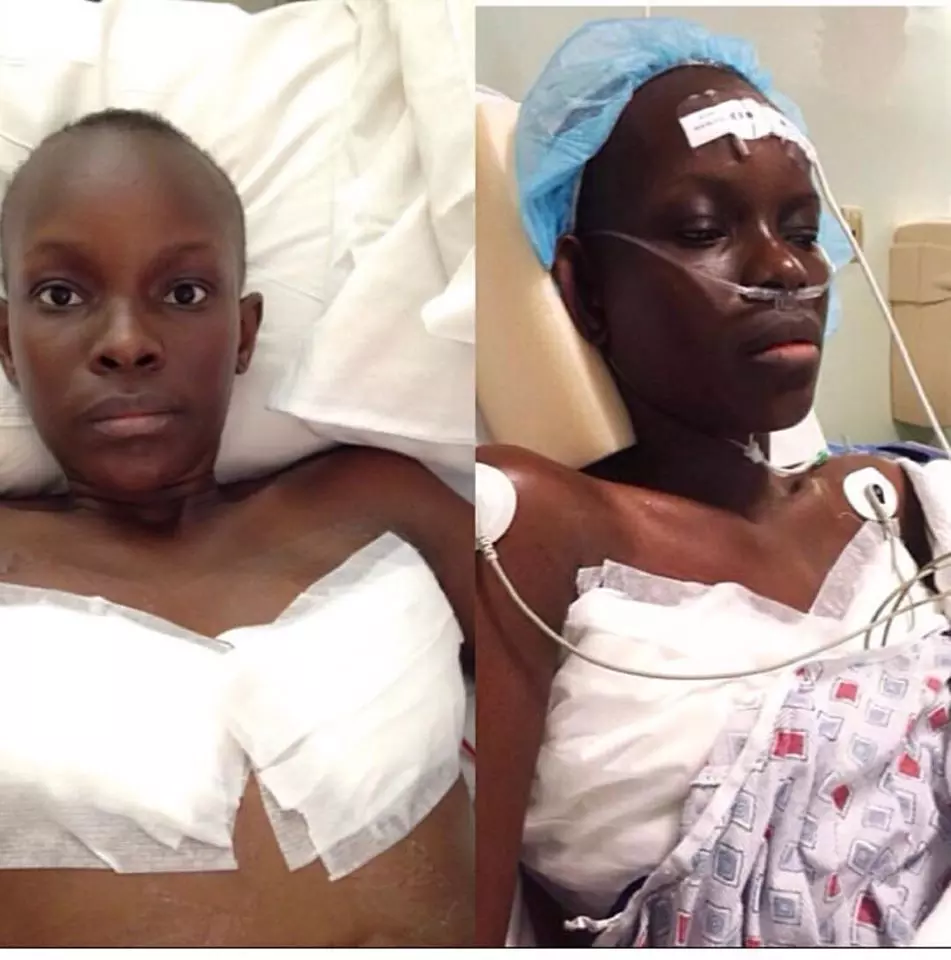- Home
- /
- Features/Spotlight
- /
- Promoting cancer...
Promoting cancer prevention, diagnosis and therapy

According to experts cancer is caused by an uncontrolled division of abnormal cells in the body.
“Cancer arises from the transformation of normal cells into tumour cells in a multi-stage process that generally progresses from a pre-cancerous lesion to a malignant tumour.
“These changes are the result of the interaction between a person’s genetic factors and three categories of external agents, including: physical carcinogens.
“Such factors are ultraviolet and ionizing radiation; chemical carcinogens, such as asbestos, components of tobacco smoke, alcohol, aflatoxin (a food contaminant), and arsenic (a drinking water contaminant).
“They also include biological carcinogens, such as infections from certain viruses, bacteria, or parasites”, says World Health Organisation (WHO) report.
Apart from genetic factors, behaviour and consumption patterns can also expose one to cancer. Such behaviour include: tobacco use, alcohol consumption, unhealthy diet, physical inactivity and air pollution.
There were an estimated 18.1 million cancer cases around the world in 2020. Of these, 9.3 million cases were in men and 8.8 million in women, says World Cancer Research Foundation International.
The Global Cancer Observatory said Nigeria has one of the highest cancer mortality rates in the world, with approximately 4 out of 5 cases resulting in death.
“Earlier diagnosis is a key part of improving survival rates further. If it is detected at an early stage, before symptoms even appear, it is easier to treat and there is a better chance of survival”, says National Health Service, England.
Health experts point out that early detection and treatment can minimise the impact of cancer on the victim. It is against this background that annually Feb. 4 has been set aside as World Cancer Day.
It is a day set aside for raising awareness on cancer and promoting early detection, care for victims and treatment of the disease.
The theme for the World Cancer Day 2022-2024 is `Close the Care Gap’.
The Registrar Radiographers Registration Board of Nigeria, Prof. Mark Okeji said cancer had become a death penalty to many Nigerians due to the cost of treatment.
Okeji said that the rate of cancer diagnosis had was worrisome in spite of the huge the investment and interventions by governments and private organisations.
He, therefore, advised Nigerians to consciously take cancer preventive measures to lower the risk of exposing themselves to the disease.
He said although the country has the national cancer centre, and cancer registries across the country many cancer interventions come from the private sector and NGOs.
He described the efforts as `a little drop of water in the ocean` because of high cost of cancer treatment.
He said therapeutic radiography brings a ray of hope for victims because it is extremely cost effective accounting for 40 per cent of patients who were cured of cancer.
He said that diagnostic radiographers use complex equipment to produce images such as x-rays or scans while therapeutic radiographers use radiation to treat cancer and tissue defects.
“They play unique role in the delivery of diagnostic procedures and cancer treatment services’’ he said.
The Minister of State for Health, Mr Joseph Ekumankama, said government was putting all the necessary strategies in place to address the high rate of cancer diagnosis in the country,
This, he said, include the expansion of access to radiotherapy services, though he acknowledged that this faces some challenges such as dearth of manpower.
Ekumankama said the Federal Government would launch the Nigeria National cancer control plan from 2023-2027, to chart a way forward in addressing cancer challenges in the country.
“The Federal Government is doing much to make sure that cancer treatment equipment are installed in six teaching hospitals to give Nigerians adequate cancer treatment.
“I want to assure you that President Muhammadu Buhari is doing much to ensure that Nigerians are given adequate cancer treatment.
“Very soon, we will be presenting a bill to the Federal Executive Council to make provision of cancer centres at various political zones so that people will have easy access for cancer treatment,’’ the media quoted Ekumankama as saying.
He called on stakeholders to address the issues of dearth of experts in cancer treatment.
Mrs Oluwanife Osungbesan, the President of the Association of Radio Therapist of Nigeria, said for instance late presentation, few machines and paucity of funds as some of the challenges facing breast cancer treatment in Nigeria.
Ahead of the 2022 edition of World Cancer Day, expert say early detection and treatment remain vital in the management of cancer.
To achieve that, the atmosphere that encourages these actions is required from governments and other stakeholders.
Early detection and treatment should include steps that lead to increased awareness of first signs of cancer, among physicians, nurses and other health care providers as well as among the general public.
According to WHO, they should be improved accessibility and affordability of diagnosis and treatment services, and enhanced referral from first to secondary and tertiary levels of care.



